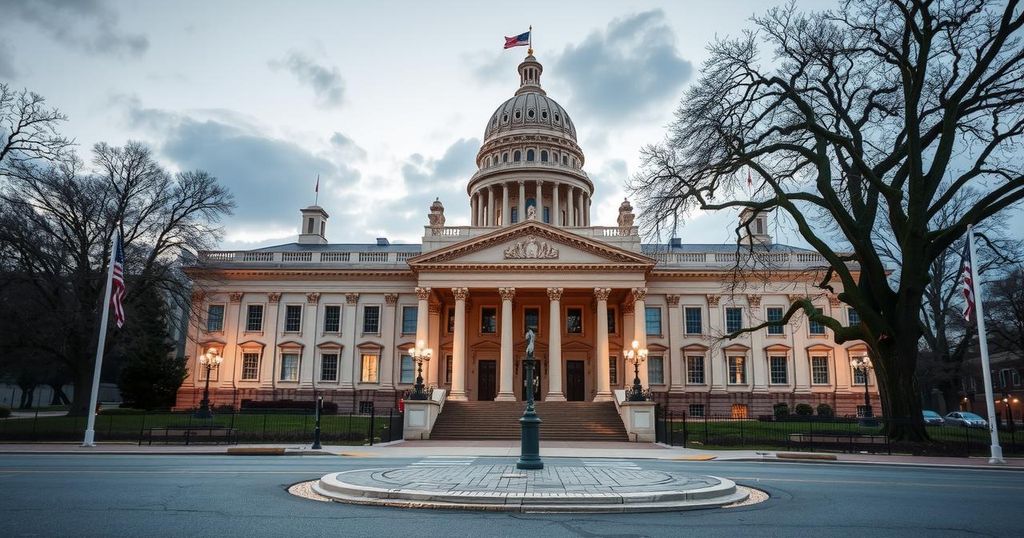World news
AFRICA, BALLOT MEASURES, BOB GOOD, DEL, DEMOCRATS, ELECTION, KAMAL, LEGISLATION, LOUDOUN COUNTY, OF DELEGATES, POLL RESULTS, PRESIDENTIAL ELECTION 2024, RAM VENKATACHALAM, REPRODUCTIVE RIGHTS, REPUBLICAN, REPUBLICANS, SENATE, SENATE DEMOCRATS, SOUTH AFRICA, STATE, TU, VA, VIRGINIA
Fatima Khan
0 Comments
Virginia’s Special Elections: A Crucial Test for Statehouse Control
Virginia’s crucial special elections on Tuesday will fill vacancies in the state Senate and House, determining legislative control amid rising abortion rights discussions. Candidates from both parties are vying for competitive districts, reflecting on past federal election outcomes that have left Democrats reassessing their strategies. The results are anticipated to have lasting implications for policy and governance in the state.
On Tuesday, three pivotal special elections in Virginia will decide the balance of power between Democrats and Republicans in the state’s legislature during Governor Glenn Youngkin’s final year in office. Voters will fill two vacancies in the state Senate and one in the House of Delegates, with significant implications for both parties. In Loudoun County, Democrat Kannan Srinivasan and Republican Tumay Harding are contending for the Senate seat previously held by Suhas Subramanyam, who moved to the U.S. House. A concurrent race for Srinivasan’s vacated House seat pits Democrat JJ Singh against Republican Ram Venkatachalam.
Moreover, in Goochland County, Republican Luther Cifers faces Democrat Jack Trammell in a Senate race to succeed U.S. Rep. John McGuire. This election cycle is crucial for Democrats, who hold a narrow majority in the Senate (20-18) and a slight edge in the House (50-49) following recent resignations. Campaigns have been notably centered on the issue of abortion rights, a prominent topic following national elections that left Democrats reflecting on their position.
Both Democrat candidates stress preserving their party’s influence in Virginia, advocating for a constitutional right to abortion, whereas their Republican opponents have emphasized party lines on issues like crime, economic challenges, and parental rights. Republican candidates Harding and Venkatachalam aim to disrupt Democratic strongholds, leveraging local concerns in their messaging. The outcome of these elections will ultimately determine not only legislative control but also significant policy directions for the state.
The political landscape in Virginia is currently characterized by a narrow Democratic majority in the State Senate, alongside a fragile grip in the House of Delegates, particularly following recent resignations. These special elections are crucial as they not only fill key vacancies but also serve as a reflection of voter sentiment in the aftermath of federal elections. With issues such as abortion rights at the forefront of political discourse, the elections will likely influence both party strategies moving forward in the much-watched political climate of Virginia.
The results of the special elections in Virginia on Tuesday will hold substantial weight in shaping the state’s legislative direction for the upcoming period, impacting both party control and key policy issues. With critical races highlighting divisive topics such as abortion and economic concerns, the outcomes may also serve as a barometer for voter sentiments in a state that has become increasingly competitive. Control over the Virginia Statehouse remains fiercely contested, making these elections particularly consequential.
Original Source: abcnews.go.com




Post Comment